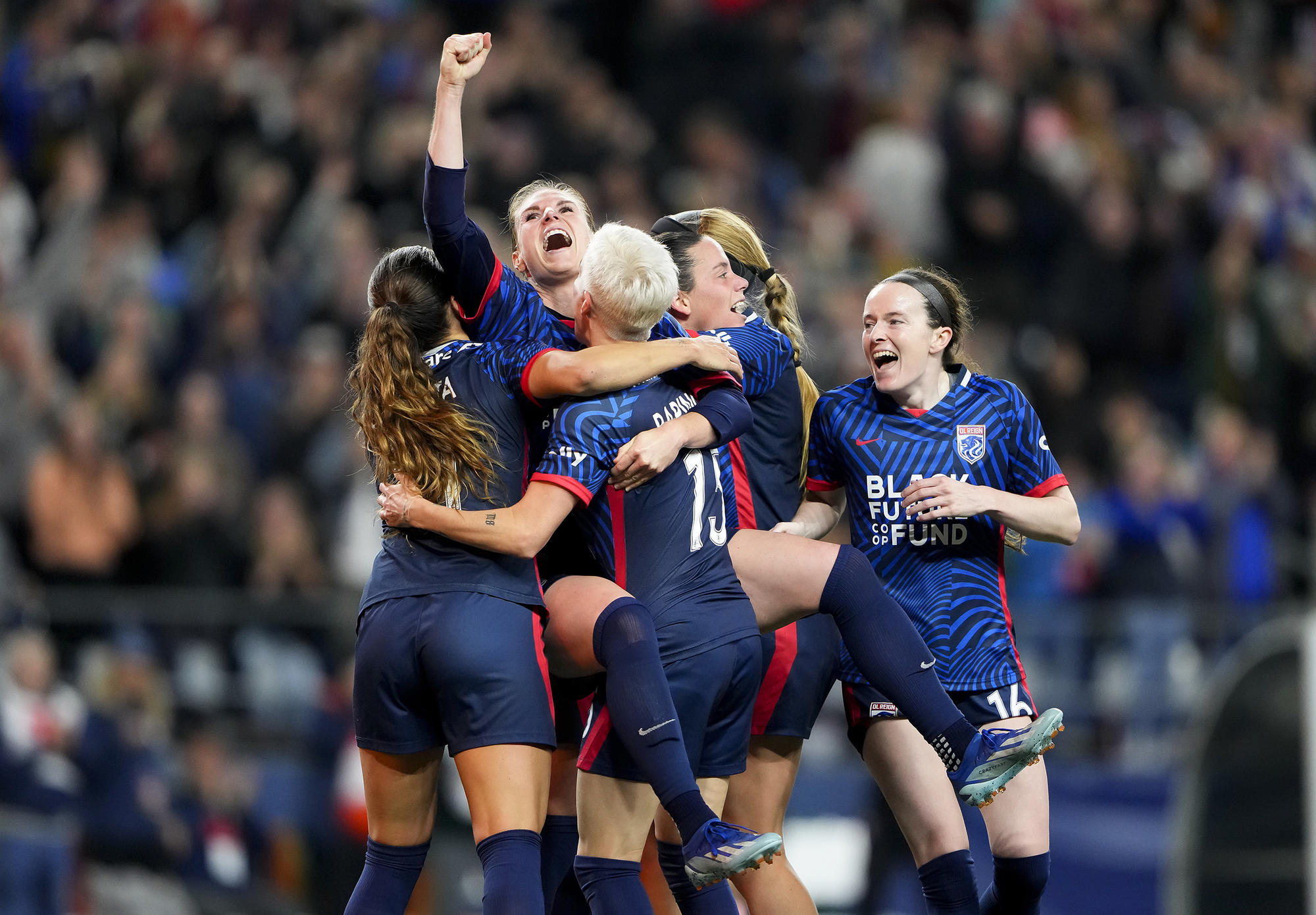
OL Reign defender Lauren Barnes also noticed the shift after the team met with Bullock in late summer.
“This year was hard in terms of a lot of internal stuff that we were dealing with,” Barnes said. “And I think for a group to be able to fight through that, there’s definitely something to say about mental health and just being able to utilize [Bullock] for a lot of that. I think she’s helped us continue to move forward even when it was super-hard.”
Barnes, who joined the Reign in 2013 at the inception of the league, said she doesn’t remember talking about mental performance for at least the first six years of her professional career, and it took another few years before the team had an in-house sports psychologist.
“I think it has changed dramatically,” she said.
Bullock says she spends time with OL Reign clarifying player and team goals and helping players focus on those goals to reduce stress, build confidence, and give a sense of control and success.
She also works through managing self-talk, which Balcer said she found useful as she experienced unhelpful thoughts in competition.
“They’re really good at giving you resources to use within yourself throughout your day that you can just implement that change the way you think and the way you talk to yourself, and shifting my focus,” Balcer said. “For me, if I don’t score, sometimes I feel like I’m not playing well. Well, there’s so many other things to soccer than just that. So now I’m asking, how am I defining my performance on the field? How am I talking to myself? What are my reactions to my mistakes?”
The kind of performance boost that comes from mental training for players – focus, grit, hardiness, passion, persistence and confidence – has also changed the demands on coaching, said Seattle-based mental performance consultant Derrek Falor.
Falor, a longtime head coach for programs like Western Washington University, works with professional, college and youth players on mental visualization and mental preparation to compete.
“Athletes are learning that to be intentional on the field means to be intentional in your mental training, too,” Falor said. “It’s a real shift in the culture.”
OL Reign defender Alana Cook sees that mental preparation as key to OL Reign’s playoff performance this year.
“In order to be able to lead and organize, I think I have to be right myself and be able to take care of my own thing,” Cook said.
This increased awareness about mental performance training comes on the heels of the U.S. Women’s national team’s partnership with Common Goal in a campaign to build mental health resources for soccer. Cook participated in the campaign alongside teammates Megan Rapinoe and Sofia Huerta.
“Speaking for me personally, but I think for all of us, it’s obviously been important to take care of your mental health both on and off the field,” Cook said. “I think being able to take on all the pressure and all the adversity, being able to be flexible and adapt to situations, you have to be clear of mind, and you have to be focused and ready to perform.”
Common Goal launched a youth soccer mental health initiative last week called Create the Space, spearheaded by San Diego Wave and USWNT defender Naomi Girma. Girma and Sophia Smith dedicated their 2023 World Cup to former Stanford teammate Katie Meyer, who died by suicide in March 2022.
Kelly Schloredt, who leads the University of Washington athletic department’s psychological services team, notes that the cluster of college athlete suicides in spring 2022, including Meyer, has been a catalyst for additional awareness about mental performance in NCAA athletics.
